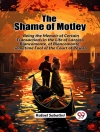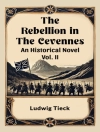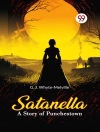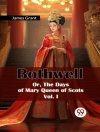In ‘Hurricane Island, ‘ H. B. Marriott Watson crafts a gripping narrative set against the backdrop of adventure and peril. This novel encapsulates the spirit of early 20th-century adventure fiction, combining elements of suspense, exploration, and the romantic allure of distant lands. Watson’s prose is characterized by vivid descriptions and a keen eye for atmospheric detail, transporting readers to the treacherous shores of a tropical isle. The interplay of human ambition against nature’s fury forms the crux of the storyline, engaging readers with a plot that intertwines personal conflict and existential challenges faced by the protagonists. H. B. Marriott Watson, born in the Victorian era, was influenced by the cultural and literary currents of his time, particularly the fascination with exploration and colonialism. His background as a writer and editor allowed him to blend rich narrative techniques with observational insights about human resilience. Watson’s own experiences and travels in the far reaches of the globe undoubtedly enriched his portrayal of the novel’s exotic setting, embodying the zeitgeist of exploration that sought to understand both nature and human nature. ‘Hurricane Island’ is a remarkable read for enthusiasts of adventure literature and those drawn to stories of survival against formidable odds. Watson’s masterful storytelling and ability to evoke the drama of the human spirit make this work a significant contribution to the genre. Readers will find themselves entranced by the intricate interplay of danger and discovery, ultimately emerging with a deeper appreciation for the courage it takes to confront life’s tempestuous challenges.
About the author
Henry Brereton Marriott Watson, commonly known as H. B. Marriott Watson, was a notable literary figure of the late 19th and early 20th centuries. Born on December 20, 1863, in Melbourne, Australia, he relocated to England where he largely pursued his literary career. Marriott Watson was an adept novelist and short story writer known for his sophisticated prose and compelling narratives. Among his diverse oeuvre, ‘Hurricane Island’ stands out as a thrilling adventure novel, exemplifying his skill at weaving suspenseful tales set against exotic locales. His literary style often intertwined elements of romance and mystery, catering to the Victorian-era’s fascination with the gothic and the sensational. While not as widely recognized today, Watson’s work was influential in his time, contributing to the genres of adventure and speculative fiction (Cox). Balancing intrigue with poignant character development, his narratives reflect the societal tensions and vicissitudes of his era. Marriott Watson’s broader body of work, which includes titles such as ‘The Heart of Miranda’ and ‘The Rebel, ‘ showcases his versatility and his ability to explore human emotions against the backdrop of heightened situations. H. B. Marriott Watson’s legacy lies in his adept storytelling and his ability to captivate readers, a testament to his prowess as a writer of fiction at the turn of the century.












